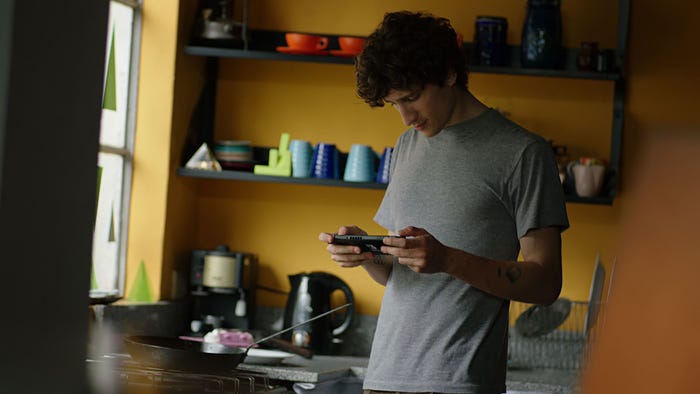In “Same but different”, I am comparing similar features between different games or within the same game series and how their differences affect the games.
This blog post focuses on the Social Link feature in the Persona series.

In “Same but different”, I am comparing similar features between different games or within the same game series and how their differences affect the games.
I really love the modern Persona series and one of the main reasons for that are the Life simulation aspects of the games.
Persona manages to connect these with the Dungeon Crawler in multiple ways, but the most prominent one is the “Social Link” System later called “Confidant” System in Persona 5.
The system works roughly the same in Persona 3 through 5 with some notable differences that change how players interact with it.
Social Link Menu in Persona 4. Picture copyright IGN.
Mechanics Overview
Basics
Instead of going into the dungeons to grind or advance through it, players can choose to spend their free time with specific characters and create/deepen a bond with them, called Social Link.
Some Social Links are locked behind certain requirements, like the player character’s stats or events in the game.
Characters have their own schedule and will not be available on each day or change their location.
Each bond the player creates is associated with an Arcana and gives an EXP boost to fusing Personas belonging to that Arcana. The deeper the bond, the higher the EXP boost and upon reaching the max rank of a social link, the player can fuse the most powerful Persona of that Arcana.
While spending time with a character, the player gets to know them better, helps them grow and helps them deal with their problems.
Not every time players spend time with a character, their Social Link will rank up, but generally, they will make progress towards the next rank.
During certain character arc relevant scenes, the player has to make dialog choices that will grant more or less progress towards the next rank of the Social Link.
If a player carries a Persona with them that has the same Arcana as the character they spend time with, they make greater progress for each interaction.
The Social Links with certain characters or groups are story bound and grow automatically as the story progresses, but we want to focus on the ones the players have to actively pursue in this comparison.
Persona 3
Persona 3 is the first game of the series to introduce the Social Link System.
Players can have Social Links with all female members of their team, but none of the males.
Other characters the player can have Social Links with are of mixed age and gender and are usually found in the school or city. Most of them don't have any involvement in the main story.
With most female characters, when reaching a certain Social Link rank means the player has an intimate relationship with her. There is no way to refuse it and most female characters will get jealous when the player doesn’t see her regularly and/or spends more time with other female characters.
Players can also give date-able girls gifts to help the progress towards the next Social Link rank.
Social Links can also reverse and break in Persona 3.
Giving the wrong answers during dialog options, not spending enough time with a character in a certain time frame, canceling plans on them or getting caught on a date with another girl will reverse the Social Link with a character.
Having a reversed Social Link will not grant players an EXP boost on Persona fusions of the associated Arcana.
When things get worse, a Social Link can also break leaving them unable to fuse or summon Personas of that Arcana.
Characters with reversed or broken social links cannot be found at their usual places, but are at different locations, seemingly avoiding the player.
The player has to talk with them multiple times to reconcile, with broken social links taking more effort. Afterward, they can continue with ranking up the Social Link.
Once a Social Link has reached the highest rank, it cannot get reversed or broken anymore.
Persona 4
In Persona 4 the player can have Social Links with all members of their team and is no longer forced into a relationship. Instead, they can now choose to continue a relationship as friends or as lovers once their Social Link reaches a certain rank.
Newly introduced with Persona 4 are skills that unlock for team members once the Social Link with them reaches a certain rank.
These are things like “Taking a mortal blow for the player” and randomly activate during battle.
The scout/support of the team who doesn't actively join the battle instead gets skills that are relevant for exploring the dungeon.
There is also a Social Link with a special character that can be found randomly in dungeons and will recharge the parties SP against a fee. The higher the Social Link with this character, the less this service costs.
In Persona 4 team members also obtain their Ultimate Personas, improved/stronger versions of their current ones, through the Social Link system. In Persona 3 the characters would undergo change as part of the overarching story of the game and so get access to them, while in Person 4 this change happens once the player maxes out the Social Link with that character.
Social Link reversal and breaking can also still happen in Persona 4 but is more limited.
Only 2 Social Links can reverse by bad dialog choices, while all characters the player can be in a relationship with can reverse if they catch them on a date with another girl.
Only one Social Links can break but unlike in Persona 3, it does not prevent Personas of that associated Arcana to be fused or summoned.
Reversed and broken Social Links still get reconciled by talking with the character, but they no longer hide at another location.
Also in Persona 4, like in Persona 3, Social Links which reached the highest rank cannot be reversed or broken.
Persona 3 Portable
Persona 4`s changes have partially also found their way into Persona 3 Portable, a port of Persona 3 for the PSP.
Most of these changes can only be found when playing with the newly added female main character. When choosing the male character, the Social Links stay the same as in Persona 3.
The female main character can have Social Links with all team members, regardless of their gender, and is not forced to date any characters of the opposite sex.
A change present with the female and the male character is that their team members will also get special skills for battle e.g. like co-op strikes. However, since the Male Character can only have Social Links with some of them, it is tied to the progress of the team’s story bound Social Link and not that of the individual members.
In Persona 3 Portable the conditions for reversal of Social Links got less strict and Social Links no longer reverse by not meeting with characters regularly or not meeting them on Sundays.
Persona 4 Golden
Persona 4 Golden is a port of Persona 4 for the Playstation Vita.
It retains the core of the Social Link system of Persona 4, with changes in details only.
The support skills team members unlock are now mapped better to the rank of the Social Link. E.g. The taking of a mortal blow for the player character is now not unlocked with rank 1, but rank 9 instead.
In addition, team members can now also learn actual combat skills for their Personas when ranking up the Social Link with them. In Persona 4 these skills were partially unlocked through normal leveling of the characters.
Another change is that Social Links with team members can now reach a maximum rank of 11 instead of 10. Their Persona changes to another Ultimate Persona, once they reach that rank.
Persona 5
In Persona the Social Link system got renamed to Confidant System, but largely stays the same as in Persona 4.
The big change to the system in Persona 5 is that now, with few exceptions, all Confidants and not just team members unlock additional bonuses besides the EXP boost for the fusion of Personas with their Arcana.
These are things like EXP sharing with not active team members, access to new items, unlocking more free time and other helpful things.
The Confidant menu also shows at which rank the next bonus unlocks and what that bonus does.
Like in Persona 4 Golden, the special skills/abilities team members unlock are better mapped to the rank of the Confidant.
A change to Persona 4 Golden is that no actual combat skills for Personas are unlocked with it.
Players can also again give gifts to date-able characters to increase progress towards the Confidant rank up, like in Persona 3.
New in Persona 5 is that by inviting some Confidants along for other activities like studying, the progress towards the next Confidant ranking up can feel very natural.
Also new in Persona 5 is that none of the Confidants can reverse or break through players’ actions or the neglect of characters.
Persona 5 Confidant Rank Up Screen
Effects on the game experience
All Persona games encourage the player to interact with the Social Link system, for the bonuses it provides to Persona fusions. This helps not to make people feel like they have to go into dungeons since there is still a benefit for the dungeon part coming out of it.
By having not all characters available for interaction on each day, players have to focus on something/somebody else when a character is not available or plan their days so that they have the time to meet a certain character with limited availability.
The Social Link system also encourages players to improve their personal stats like “Knowledge” or “Diligence” since they can be requirements to start or progress them, getting the player to try more of the available content in the game.
In Persona 3 players are more pushed into the direction of Social Links by other game systems.
The sickness and tiredness mechanics discourage going into the dungeon multiple days in a row and encourage them to find other ways to spend the evening.
Players also will have to stick with started Social Links, because otherwise, they have to fear potential negative consequences.
Compared with the other Persona games, Persona 3 is very dating oriented, especially when playing with a male character.
In general, Persona 3 is the game that most accurately reflects the effort one has to put into building and maintaining relationships. If one wants to get all Social Links to Max level it is likely that in the process they will run into trouble with some others.
Persona 4 is encouraging players to focus more on team members since it will give them advantages during combat.
This is especially true in Persona 4 Golden since important Persona skills can only be obtained that way. When one does not rank up Team Member social links high enough, they will run into problems later in the game since they will be missing powerful skills.
In general, the Social Link system is more casual here, by removing most of the reasons why Social Links could reverse or break present in Persona 3.
Players are freer to spend time with the characters they like the most since they usually don't have to worry about Social Links they don't focus on right now.
Persona 5 encourages a more practical approach to the Confidant System.
While it is still very beneficial to rank up the Confidant rank of team members for combat, other Confidants give highly beneficial unlocks.
This leads to a more Min-/Max-ing mindset where certain characters are very valuable for their unlocks. This gets especially highlighted by one Confidant which can show the unlocks of other Confidants.
In general, the Confidant system is encouraging players by unlocks, but on the other hand not having these can have a negative impact on the game by making it harder or requiring more grinding.
Since Persona 5 has no reversal or break of Confidants, players are freer to express themselves in dialog choices than in Persona 3 and 4.
However, since dialog choices grant different amounts of progress towards the next rank, players will in most cases choose what they think grants them the most progress. This is true for all Persona games.
All Persona games don't encourage players to keep interacting with characters, once they have reached the maximum social link rank, apart from enjoying spending time with the character.
The existence of other Social Links and limited time available actually discourages “wasting time” with the character and instead focusing on others where the Social Link has not progressed that far.
Social Link dialog with Aigis in Persona 3
Personal Opinion
As a designer, I find the approach of Persona 3 the most interesting one since it reflects the building and maintaining of real relationships the closest.
The maintenance that has to go into it with all the reasons why Social Links can break or reverse can make it however less pleasant to interact with it. But I believe there is room to explore that aspect more in a less drastic way.
For example by a need to warm up to one another again, over a period of time with less progress granted towards the next Social Link Rank during these meetups.
Personally, as a player, I like the version we find in Persona 4 the most.
The time you spend on building relationships there feels like the most honest one in the series.
While in Persona 5 you get great unlocks from Confidants, it makes the relationships feel dishonest and reduces the characters to tools you use to achieve your goal.
You choose to rank up the characters which give you crucial improvements, instead of spending time with the characters you like the most.
The Social Link system, by its nature, always has the tendency to make players focus on certain characters because they provide them with something they can unlock through it.
However, Arcana specific EXP bonuses for fusions and the unlock of a special Persona fusion when maxing out the Social Link will in most cases not incentivize players to choose one character over another. Since skills are not tied to Personas of a specific Arcana, there should not be a reason to favor a certain Arcana.
Persona 4 was the first game that introduced gameplay benefits tied to specific characters.
Here it is however only focused on team members so that it doesn't disrupt all Social Link interactions. In this case, I am also not bothered by it because for me it seems natural that there should be a strong bond to your team members.
Bonuses that get unlocked through it also don't get advertised and so come like a nice surprise and it feels natural when at one point a character would take a moral blow for one.
In Persona 4 Golden it however already goes too much in the direction of Persona 5, since crucial skills are only unlockable this way and players are at a disadvantage when they don`t have them.
For future Persona games, I hope the series finds a way to make Social Links more focused on characters again instead of the bonuses they provide.
Other wishes I would have is that spending time with characters that have reached the maximum rank of their Social Link would no longer feel like a “waste of time”, for example by having a common resource filled by interaction with any Social Link, or that roleplaying gets a bigger focus by removing point values from Social Links dialog choices.
However, all these things are so integral to how the system currently works, that we will not find answers to them on this short text and it was also not the goal of this exercise.
But no matter where the journey will go for the next Persona installment, I am already looking forward to it.
Read more about:
BlogsAbout the Author(s)
You May Also Like









